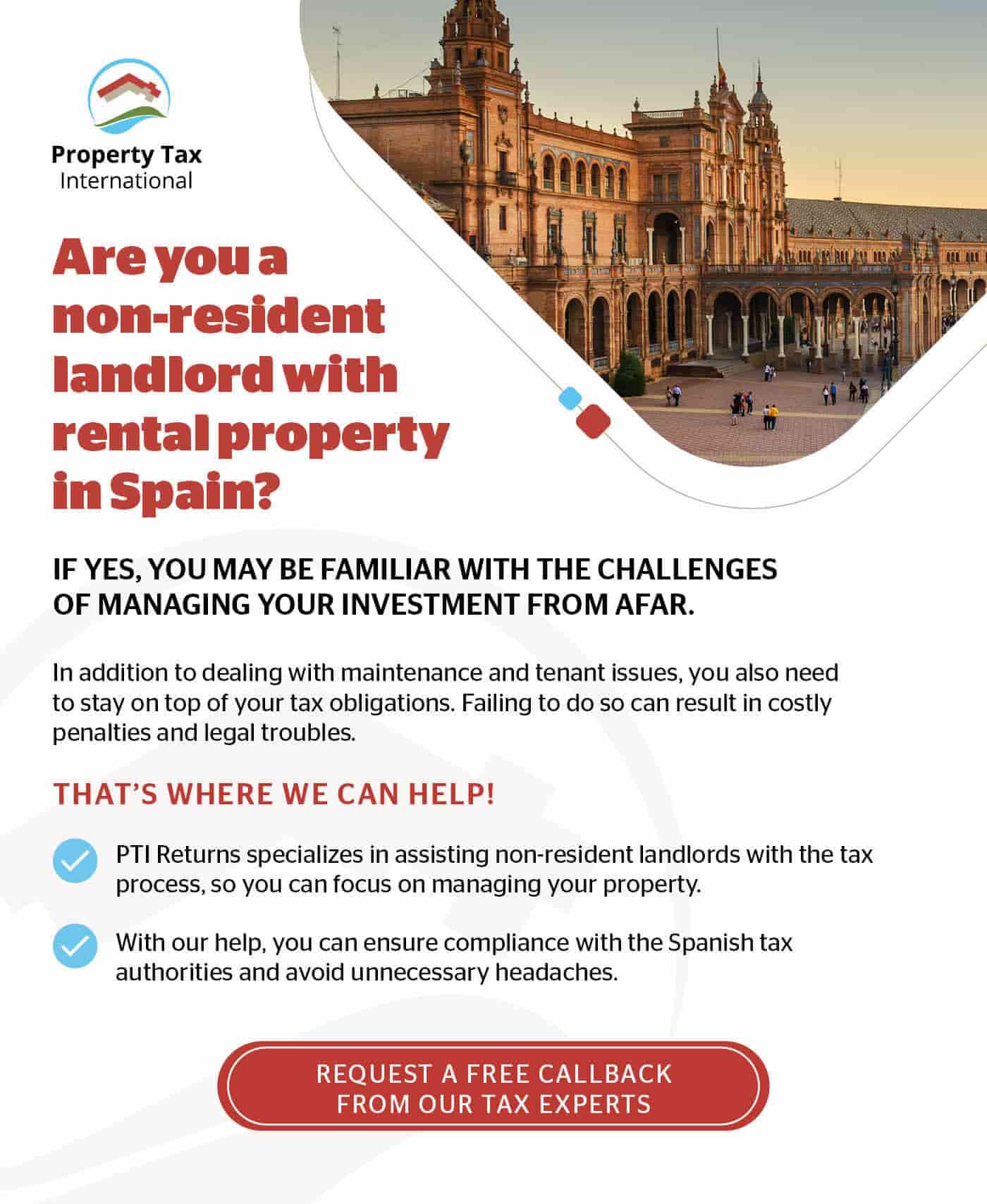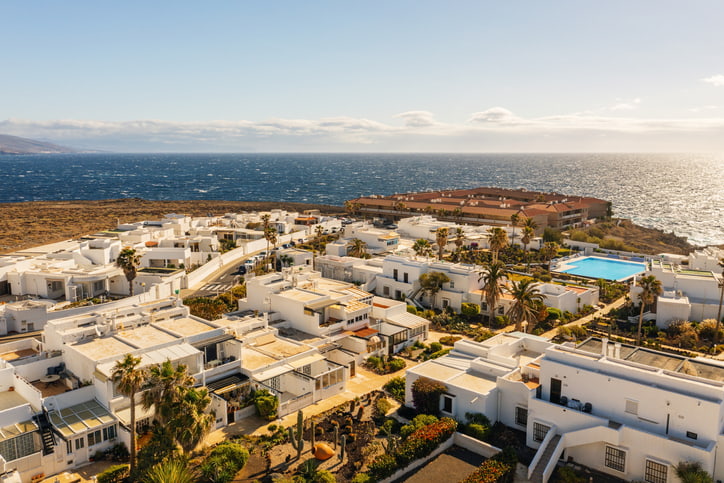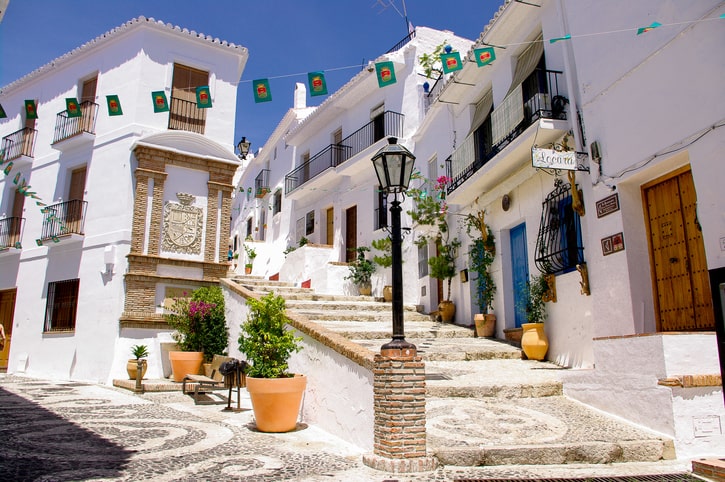Last Updated on March 20, 2025
Ready to own a piece of paradise in Spain? More and more foreigners are purchasing properties in Spain. According to information from Spain’s General Council of Notaries, over 67,983 houses were bought by foreigners in 2023, making up around 13% of all transactions. Additionally, foreign citizens signed 7% of the mortgages issued in Spain for property purchases. Luckily, getting a Spanish mortgage for non-residents is possible, and there are various options available. This could be the golden ticket you need to unlock the doors to the country’s coveted housing market. Buying property in Spain, such as a holiday home, and getting a Spanish mortgage for non-residents might be difficult but not impossible. While some Spanish banks may turn a blind eye to those living and paying taxes abroad, don’t fret! There are plenty of other banks that are more than happy to give mortgages to foreigners so that they can make their Spanish dream a reality. Here is everything you need to know about mortgages in Spain for non-residents.
Please note: PTI Returns provides property tax return filing services to Spanish property investors. Unfortunately, we do not offer support services related to mortgage applications or Spanish property purchases.
In this guide:
- Can non-residents get a mortgage in Spain? What is a non-resident mortgage?
- Why is Spain a good place to get a mortgage or financing for buying a property?
- What are the advantages of getting a Spanish mortgage for buying a property?
- What are the interest rates of Spanish mortgages for non-residents?
- What types of mortgages are there in Spain for non-residents?
- What are the pros and cons of Variable Rate Mortgages in Spain?
- What are the pros and cons of Fixed-Rate Mortgages in Spain?
- What is a loan to value (LTV) in Spain?
- What’s the highest loan amount available for non-residents seeking a mortgage in Spain?
- How long does it take for a non-resident to take a mortgage in Spain?
- What’s the maximum age for a non-resident mortgage in Spain?
- Can I get a mortgage as a retiree in Spain?
- Is it necessary to have a bank account in Spain in order to purchase a property there?
- What documents do I need to get a mortgage in Spain for non-residents?
- What does the 35% “debt to income” rule (DTI) mean?
- What are the differences between the mortgages for non-residents in Spain and for residents?
- Can obtaining a mortgage in Spain as a non-resident lead to tax benefits?
- How can I lower my taxes by getting a Spanish mortgage?
- Which types of properties are eligible for a mortgage from a Spanish bank?
- Who can help you file your non-resident income tax return in Spain?
Can non-residents get a mortgage in Spain? What is a non-resident mortgage?
The good news is that foreigners can get a mortgage in Spain too! Non-resident mortgages in Spain are loans offered by lending institutions to individuals who are not citizens or residents of Spain. This means that the borrowers either spend less than 183 days in Spain during a calendar year or do not conduct their primary business activities in Spain. Simply put, non-resident mortgages are available to anyone who pays taxes outside of Spain, regardless of their nationality. The most popular option for foreigners is fixed-rate mortgages. As fixed rate mortgage rates help lenders offset some of the risks associated with lending to those who are not fiscal residents in Spain. However, banks have different requirements for non-residents in Spain and terms and conditions may vary. So, be prepared to provide additional documentation such as proof of income, work contracts, and tax returns. Foreigners are also typically required to make a minimum deposit of 20%-30% of the property’s total cost and show evidence of regular income. As a non-resident of Spain, you can usually obtain a mortgage that covers 70% of the property’s purchase price. In contrast, residents may be eligible for up to 80% financing. The maximum period for which you can borrow is typically between 20 and 25 years. Non-residents may also be required to show proof of a valid residence permit to secure a Spanish mortgage. But don’t worry, with the right preparations, you’ll be well on your way to owning a piece of sunny Spain.

Why is Spain a good place to get a mortgage or get financing to buy a property?
Buying a property in Spain could be a smart choice due to the many benefits of getting a mortgage there. One significant advantage is the low costs associated with this process. Another benefit is the flexibility that is currently available.
What are the advantages of getting a Spanish mortgage for buying a property?
Save money on setup fees
Since the new mortgage law took effect in June 2019, consumers have seen significant benefits. Under this law, banks are responsible for paying the setup fees associated with mortgages, including the AJD tax (actos jurídicos documentados). In the past, homebuyers were responsible for paying fees such as registration, stamp duty, and notary fees, but those have been eliminated with this new law. The bank now bears that cost. This translates to a substantial reduction in costs for the homebuyer, resulting in a more affordable mortgage. The only fees that remain are the valuation fee, typically a fixed cost of €300-500, and the arrangement fee, which varies from bank to bank, but usually falls within the range of 1-1.5%. Some banks are even willing to cover these costs, making it an even better deal for potential homebuyers. Not all banks offer this deal, however. With these advantages, it’s no wonder Spain is one of the best places to secure financing for a property.
Low-interest rates in Spain
Maybe you are thinking – if financial institutions are no longer earning revenue from their previous arrangement, they must be generating funds from another origin. It’s likely they’re imposing additional fees on the purchaser, leading to an increase in mortgage interest rates. That seems to be the only plausible explanation. However, that’s not the case. Spain’s interest rates are incredibly low, in fact, they’re the lowest they’ve been in the last three decades. Spain has some of the most affordable rates in Europe, making it an ideal place to obtain financing. Therefore, if you’re pondering the principal drawback of this new policy, it lies in the loan-to-value ratio. Due to this, banks are now more stringent when it comes to granting mortgages and will only provide funding for 60% to 70% of the property value. We’ll delve more into that shortly.
What are the interest rates of Spanish mortgages for non-residents?
Spanish residents enjoy historically low mortgage interest rates, with new mortgages offering rates of 1% or lower. However, non-residents seeking mortgages may encounter interest rates of at least 2-2.5%. If you’re considering taking out a mortgage in Spain, you’ll be pleased to know that the government offers some fantastic incentives to encourage you to do so! One of these incentives is the ‘Euribor’ rate, which is a discount on the interest rate available to those who opt for a mortgage with a Spanish bank. And, the great news is that the Euribor rate is currently at an all-time low! This means that there’s no better time to consider taking out a Spanish mortgage for non-residents. Just remember, that interest rates can fluctuate, so it’s always wise to seek advice from a mortgage expert before making any big decisions. Assuming you have a stable income and a healthy debt profile, as a non-resident looking to take out a Spanish mortgage, you can expect to receive some attractive interest rates. Typically, a variable interest loan would be around 2% above Euribor, while a fixed rate would be approximately 3.5%.
- The typical interest rate for variable-rate home loans is 3.5%.
- The interest rate for fixed-rate mortgages is 4%.
However, it’s important to note that these rates may change in the future, by the time you choose to apply for a mortgage. Interestingly, the rates on offer in Spain are often more favorable than what you might find in your home country, even though you are not a resident there. On the whole, Spanish mortgages typically offer lower interest rates compared to other European countries.
What types of mortgages are there in Spain for non-residents?
Spain offers three primary mortgage options: variable, fixed, and mixed (which is a blend of the first two). Buy-to-let and interest-only mortgages aren’t options for those looking to purchase property within the country. While the financial products offered are identical for residents and non-residents, discrepancies may arise due to differences in the fundamental terms of the loan.
What are the pros and cons of Variable Rate Mortgages in Spain?
Pros: Variable interest rates for mortgages in Spain are usually lower than those for fixed-rate mortgages. For the convenience of mortgage borrowers, variable rates are typically fixed for one year and then reviewed annually, allowing borrowers to plan their budgets. Interest rates for variable mortgages can increase or decrease based on the base rate or the Euribor rate, making it a potentially more attractive option for some borrowers. Cons: The lower interest rate on variable mortgages comes with the risk of the rate increase in the future, leaving borrowers with potentially higher monthly payments. While borrowers may be able to afford the interest payments at the time of taking out the variable mortgage, there is no guarantee that they will be able to afford the full mortgage amount if the variable rate increases significantly. The rise or fall of interest rates for variable mortgages is dependent on the Euribor rate, making it a riskier option for some home buyers.
What are the pros and cons of Fixed-Rate Mortgages in Spain?
Pros: A fixed-rate mortgage is a great option for individuals looking to plan their budget around a consistent mortgage payment. The payment amount remains unchanged throughout the duration of the fixed term or for the entire mortgage period. This stability can provide peace of mind to mortgage applicants. Additionally, fixed rates can be more cost-effective in the long run as variable rates are subject to change based on European Central Bank rates. Many mortgage applicants prefer the predictability of a fixed rate, which ensures a consistent payment amount for the entirety of the mortgage term. Cons: Fixed-rate mortgages usually have slightly higher payments compared to variable-rate mortgages. Additionally, if the Euribor rate for variable mortgages does not increase, the total mortgage amount for a fixed-rate mortgage can be higher in the end.
*Note: Our tax advisors assist non-residents with rental properties in Spain for filing rental income tax returns. However, we are unable to assist with mortgage-related matters for non-residents.
What is a loan to value (LTV) in Spain?
Loan to value (LTV) is the percentage of the property value (excluding tax) that a bank or building society will finance. Each lender offers different amounts for this ratio. Suppose you obtain a €60,000 mortgage to purchase a property worth €100,000. In that case, the loan-to-value (LTV) ratio would be 60% because the loan amount represents 60% of the home’s value.
What’s the highest loan amount available for non-residents seeking a mortgage in Spain?
As a rule of thumb, non-residents seeking to borrow in Spain can usually obtain up to 70% of the property’s value, although certain lenders may only feel at ease with a 60% LTV. They require buyers to provide the remaining 30% in addition to around 10%-14% for purchase costs such as taxes and fees. On the other hand, Spanish residents are usually able to borrow more than 80% of LTV. In addition, non-residents typically face higher interest rates and shorter repayment periods. This can be a daunting amount to come up with, particularly when you want to buy an expensive property in Spain. However, if you have a stable income and your debt management (including loans and other mortgages in your home country) constitutes less than 40% of your income, you can demonstrate proof of your income, which enhances your chances of being eligible for a mortgage in Spain.
How long does it take for a non-resident to take a mortgage in Spain?
When it comes to obtaining a mortgage in Spain, the process can vary depending on several factors. From the type of property you’re buying to the lender you choose, numerous variables can impact how long it takes to secure a mortgage. The timeline for this can vary from a few days to a few weeks, depending on the specific lender you choose. Typically, it takes approximately 4 to 6 weeks to secure approval from the Spanish bank. It’s a good idea to plan for at least two months from start to finish. This gives ample time for all the necessary steps to be completed, including assessing your application, valuing the property, and completing all the required paperwork. Once everything is in order, the lender will then review your application and approve the mortgage. So, if you’re looking to buy property in Spain, be sure to plan ahead and give yourself plenty of time to get everything in order.
What minimum income is needed to be eligible for a non-resident mortgage in Spain?
To be eligible for a non-resident mortgage in Spain, it is usually necessary to earn a minimum annual income of approximately €30,000. If you are self-employed, you will need to provide evidence of your earnings from the previous year. Having a good credit history is also essential, as Spanish banks typically require this for mortgage approval. While individuals with poor credit histories may still be able to obtain a mortgage, they may need to provide a larger deposit than those with a strong credit history.
What’s the maximum age for a non-resident mortgage in Spain?
While there is technically no age cap for non-residents to qualify for a Spanish mortgage, it’s worth mentioning that many banks typically only offer mortgages to individuals between the ages of 18 and 65. As a result, if you’re over the age of 65, it may still be possible to secure a mortgage, but it could be more challenging.
Read also: UK resident selling property in Spain – Complete Guide Overseas real estate tax – A Guide for American investors with property abroad
Can I get a mortgage as a retiree in Spain?
If you’re over 60 and interested in retiring in Spain, you can obtain a Spanish mortgage for non-residents as long as you have a pension. When applying for a retiree mortgage, you can choose a guarantor, such as a relative, to secure the loan. If the guarantor is a co-owner of the property, you may be eligible for tax benefits.
Is it necessary to have a bank account in Spain in order to purchase a property there?
Yes. If you wish to fund the purchase of a property in Spain, you will have to pay taxes, utilities, and other expenses. To open a bank account in Spain, you will need to obtain an NIE.
What documents do I need to get a mortgage in Spain for non-residents?
As a non-resident purchasing a property in Spain, you will need to furnish the following documents to your lender:
- a copy of your NIE (Número de Identificación de Extranjero) or passport. If you’re a foreigner without residency in Spain, you will need to apply for it at a police station. But if you’re not in Spain, you can do this at a Spanish embassy or consulate.
- a certificate confirming your non-residency status in Spain
- an employment contract
- your latest payslips from your country of residence
- a bank statement for the previous year showing salary payments
- tax returns
- a tax residency certificate
- the contract for the property being purchased
- the last three canceled debt receipts
- credit rating from your home country (if it’s available)
If you’re in the UK, you can get this easily from any of the three main credit reference agencies: Experian, Equifax, or TransUnion. If you’re in the USA, you can get this from TransUnion. While it may seem like a lot of documentation, each item aids your lender in assessing your risk profile by providing information on your income and debt level. Your documents must be in Spanish As a non-resident looking to get a mortgage in Spain, you will need all your documents to be translated into Spanish, and they may need a Hague Apostille attached to them. This is a stamp that verifies the authenticity of your original documents and is often required for them to be accepted in other countries. It’s best to check with the bank in advance to know which documents are needed and whether official translations and the Apostille are necessary.
What does the 35% “debt to income” rule (DTI) mean?
According to the Bank of Spain, it is advisable to use the 35% debt-to-income rule to determine the amount of money we should save and spend each month. This rule takes into account our total income and subtracts other existing debts in our home country and the new mortgage in Spain to calculate our debt capacity. It should not exceed 35% of the net capital we have left for the month.
What are the differences between the mortgages for non-residents in Spain and for residents?
As mentioned above, non-residents should anticipate higher costs due to elevated interest rates. Furthermore, they’ll receive less funding for their property purchase. Additionally, non-residents will encounter shorter repayment periods, with few loans exceeding a 20-year term. Meanwhile, residents have the luxury of selecting repayment periods of up to 40 years. To further mitigate risk, banks often provide non-residents with fixed-rate mortgages. However, this isn’t always the case. Non-residents will also need to take into account the required documentation, as an additional document may be requested: a credit rating from their country of origin. Taxes are also subject to variation, with those residing in Spain for less than 183 days per year facing different taxes, such as the 3% levied on property sales. Finally, non-resident mortgages may have limited flexibility and feel slightly outdated.
Can obtaining a mortgage in Spain as a non-resident lead to tax benefits?
Yes, your Spanish taxes will be reduced by getting the Spanish mortgage.
How can I lower my taxes by getting a Spanish mortgage?
Taking out a mortgage on your Spanish property can actually help you reduce the amount of taxes you need to pay. Interest on mortgages is an allowable expense, so they will reduce the taxable base and the tax due – This applies only to EU citizens. You can also reduce your liability for inheritance and wealth taxes. Additionally, the interest paid on your mortgage and property taxes can be deducted from your annual income taxes. When you file your taxes, the value of your property will be lowered by the amount of your mortgage. However, this only applies if you had the mortgage in place when you bought the property. Even if you have enough money to buy the property outright, it may be a good financial decision to consider getting a mortgage, as it can help you save on taxes. It’s important to keep in mind that releasing equity in Spain can be difficult once you have purchased a property. If you are a homeowner who has a Spanish mortgage, you can deduct the value of the loan from the net value of your assets. This can result in either a reduction in the amount of wealth tax you have to pay or bring you under the threshold, which means you won’t have to pay any wealth tax at all. By having a mortgage on a property in Spain, you can potentially save a significant amount of money. The Spanish mortgage can also lower your inheritance tax because mortgage debt is considered deductible when calculating inheritance taxes. Only the free equity, which is the portion of the mortgage that has been paid off, is taxed. To illustrate, if your property has a value of €180,000 and you still owe €100,000 on your mortgage, only the free equity (which is €80,000) will be subject to inheritance tax.
Which types of properties are eligible for a mortgage from a Spanish bank?
It is common for Spanish banks to provide mortgages for a range of property types, such as apartments, villas, and townhouses, as well as rural properties. Nonetheless, it is essential to bear in mind that each bank has its own set of criteria for the type of property it will lend against. When it comes to rural properties, plots of land, and commercial properties, it is usually more difficult to meet the requirements, and the decision often depends on the borrower’s financial status and the property itself, including any legal matters related to it.
Attention non-resident landlords with rental property in Spain!
Managing your investment from afar can be a challenge, especially when it comes to staying on top of your tax obligations. Don’t risk costly penalties and legal troubles with the Spanish authorities – let us help! We specialize in assisting non-resident landlords to file their annual income tax returns and pay the Spanish rental income tax they owe. With our help, you can take care of your property while we take care of the paperwork. Don’t let taxes stress you out – contact PTI Returns for a free no-obligation consultation with our property tax experts. *Note: Our tax advisors assist non-residents with rental properties in Spain for filing their rental income tax returns. However, we are unable to assist with mortgage-related matters for non-residents.




